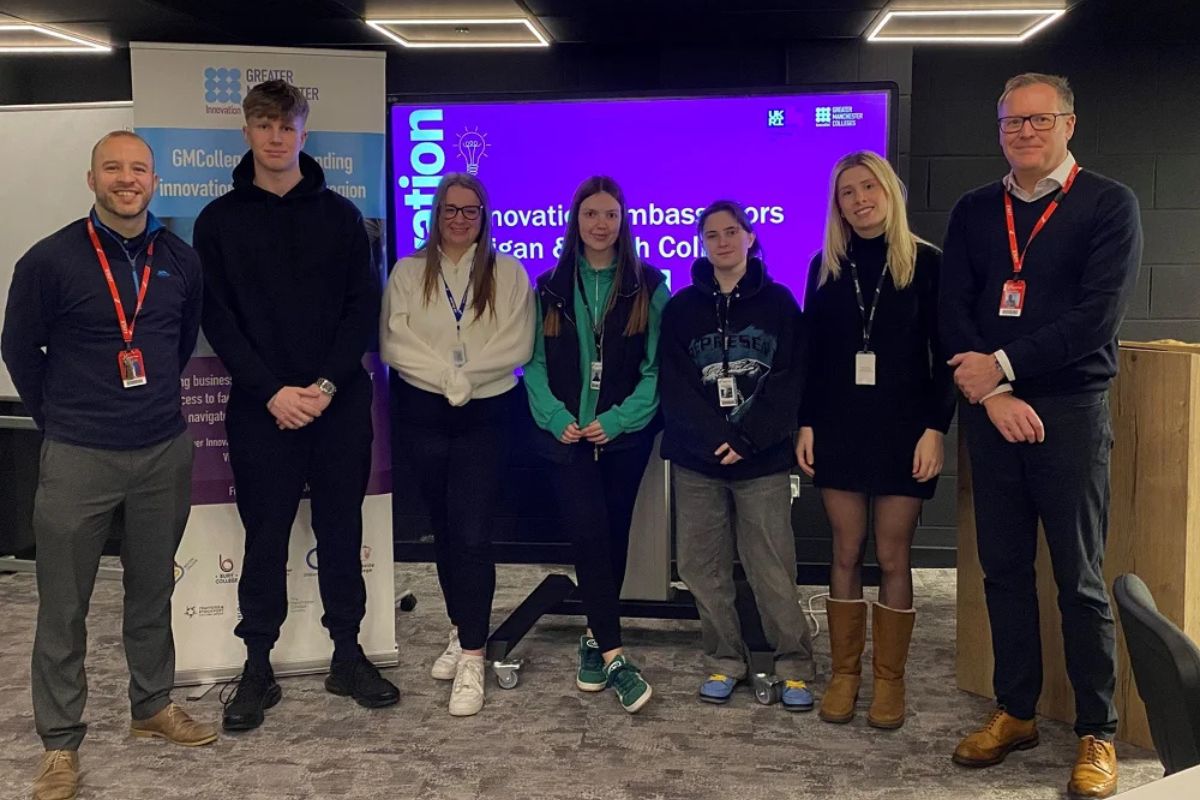Empowering Young Tech Talent: Unlocking Potential for Business Innovation

Ash Gawthorp highlights the digital skills gap faced by young talent in the tech industry and the need for businesses, government, and educational institutions to collaborate in order to bridge this divide and support the next generation of tech professionals.
As young talent steps into the tech industry, they face significant challenges that could hamper their success. Despite being digital natives, Gen Z might not be as well-prepared for technical work as one might assume. Traditional education systems are failing to equip them for the demands of a digitally driven job market. In fact, a study by Dell, which surveyed 15,000 Gen Z individuals, found that 37% believe their education does not sufficiently prepare them for a digital future, and 56% have received minimal to no digital skills training in school.
This growing lack of digital skills presents a paradox for many companies – while there is a strong belief in the value of young talent among IT decision-makers, there also seems to be a disconnect in support mechanisms. Many businesses lack training programs or early career schemes, highlighting a critical need for improved recruitment strategies. Addressing these issues directly and creating an inclusive environment could help cultivate a diverse pool of young talent, driving innovation and growth in the tech sector.
Navigating and resolving the tech skills gap
Our education system has overlooked the importance of technology skills essential in today’s business world. While it is impressive to see children building apps and using tablets in their classrooms, university education intended to prepare the future workforce is lacking.
Key and rapidly evolving tech areas such as mobile application development, artificial intelligence and machine learning, IT security, and cloud technologies are not adequately taught from a practical perspective in higher education. Technology advancements are now being made so quickly that the education system cannot adapt their syllabus fast enough to include updated sessions on new technology, as it takes too much time to develop the content and find people who are qualified to teach these courses. And although university courses offer a solid IT foundation, graduates soon encounter job roles requiring vendor or coding language-specific exposure or experience.
Understanding and tackling this skills gap requires a multi-pronged approach that involves both addressing deficiencies in the education system and providing opportunities for ongoing learning and skill development.
Tapping into the expertise of mature talent
Training and developing young talent in digital skills, which is required in today’s workplace, is essential for bridging the digital skills gap as well as ensuring a sustainable workforce, and experienced team members play an important role in this process.
Organisations need to take a chance on newcomers, understanding that they won’t have five years of experience and immediate proficiency. Instead, using seasoned professionals to mentor and guide new staff is a vital strategy. While this might temporarily draw experienced employees away from their daily tasks, the time and investment in training new talent is critical for long-term success.
A lack of new talent in the tech industry increases pressure on companies to retain their current employees, and continuity is invaluable for maintaining smooth operations in software and business processes. Lead developers and established staff who built and maintain systems are irreplaceable, making their mentorship of new hires even more valuable. Retaining senior professionals is also becoming increasingly difficult as more people are choosing to retire or leave the workplace, emphasising the importance of focusing on training young people and developing early career schemes.
Priorities training and development of young talent
Feeling valued and supported is crucial in any job. When young employees are given opportunities to learn and develop new skills, they feel more engaged and appreciated, leading to higher job satisfaction. Teaching employees’ skills aligned with business needs allows them to transition into in-demand career paths while retaining talent. As they gain new knowledge and abilities, they also become more confident in handling new challenges.
When it comes to training, businesses should also consider seeking the help of technology training experts to upskill or reskill their employees. Expert support in training can make a significant difference, potentially saving companies from the recruitment battlefield. They can help identify the right employees for reskilling initiatives, which is a critical step often overlooked by firms. Rather than pigeonholing individuals based on their current roles, it’s essential to assess individual’s capability, aptitude, and drive for the new roles. Assessments based on aptitude testing can reveal unknown behaviors, traits, and attitudes essential for learning and applying job skills. This approach helps firms uncover hidden talents in employees who, with training and support, can excel in their roles.
By offering growth opportunities via training programs, businesses can demonstrate their commitment to the employees’ professional development, which in turn builds loyalty and reduces turnover rates over time.
Re-thinking the recruitment strategy
While innovation within technology teams often focuses on automation or artificial intelligence, rarely do organisations think about innovating their recruitment processes and team development strategies.
When recruitment teams consult with their tech departments, they often end up with an extensive list of required skills and experiences. This list becomes a stringent filter, making it challenging to find candidates who perfectly match every criterion. Given the rapid pace of technological change, the skills required today are unlikely to remain relevant in two to five years, further complicating the recruitment process.
There is also the common misconception that only super smart IT whizzes with university degrees can excel in tech fields, which makes the sector quite restrictive to enter. To broaden the pool of potential tech talent, this perception must change. By rethinking recruitment strategies to focus on potential and transferable skills rather than rigid qualifications, organisations can better support young talent in tech. This approach not only diversifies the talent pool but also ensures that the workforce is adaptable and prepared for future technological advancements.
Paving the path ahead via a collaborative approach
The current mismatch between the demand for digital skills and the supply of qualified individuals highlights the challenges faced by the industry. Despite the relentless drive for technological advancements and the adoption of new platforms, today’s workforce is struggling to keep up with the required digital competencies.
To bridge this skills gap, collaboration between the government, industry experts, and educational institutions is essential. The government should consult tech professionals and industry leaders to develop comprehensive strategies that promote tech education across schools and business organisations.
By harnessing the expertise of different stakeholders, we can create a sustainable and innovative digital ecosystem that benefits the society and businesses and ensure that the UK’s young talent remains at the forefront of technological advancement.
By Ash Gawthorp, Chief Academy Officer at Ten10











Responses